Water-Cooled Slide
Because Fun Shouldn't Equal Seared Flesh
Because Fun Shouldn't Equal Seared Flesh
To make the experience fit your profile, pick a username and tell us what interests you.
We found and based on your interests.
IMG_20160712_171226.jpgThe original measured temp. This was at 5pm on a partially overcast day. Definitely not the worst it can get, but 162 degrees Fahrenheit is plenty hot!JPEG Image - 2.79 MB - 07/13/2016 at 01:30 |
|
|
IMG_20160609_202918.jpgJPEG Image - 6.35 MB - 07/13/2016 at 01:30 |
|
|
IMG_20160712_171222.jpgJPEG Image - 2.78 MB - 07/13/2016 at 01:30 |
|
|
IMG_20160712_172113.jpgJPEG Image - 2.61 MB - 07/13/2016 at 01:30 |
|
|
IMG_20160712_171742.jpgJPEG Image - 2.86 MB - 07/13/2016 at 01:30 |
|
|
This was a quick project that I thought up the day before. I was out in the backyard encouraging my kids to play on the playset I had recently finished building for them (see below).
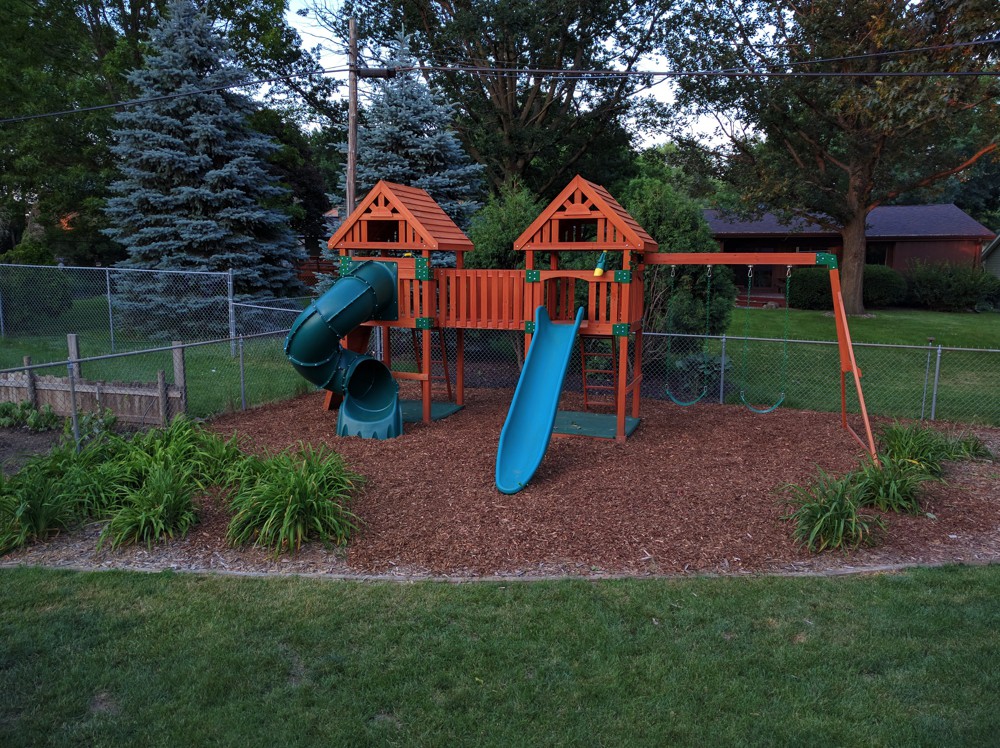
But when I told them to go down the slide they looked fearful and said they didn't want to. Disappointed, I asked them why not? They said because it was too hot. I put my hand on it and immediately pulled it back as if I had just slapped my hand down on a grill. They weren't kidding. According to my IR Thermometer, it was over 161 degrees (see below). And that wasn't even a particularly sunny or hot day, plus it was already 5pm! Well, that just wasn't going to work.
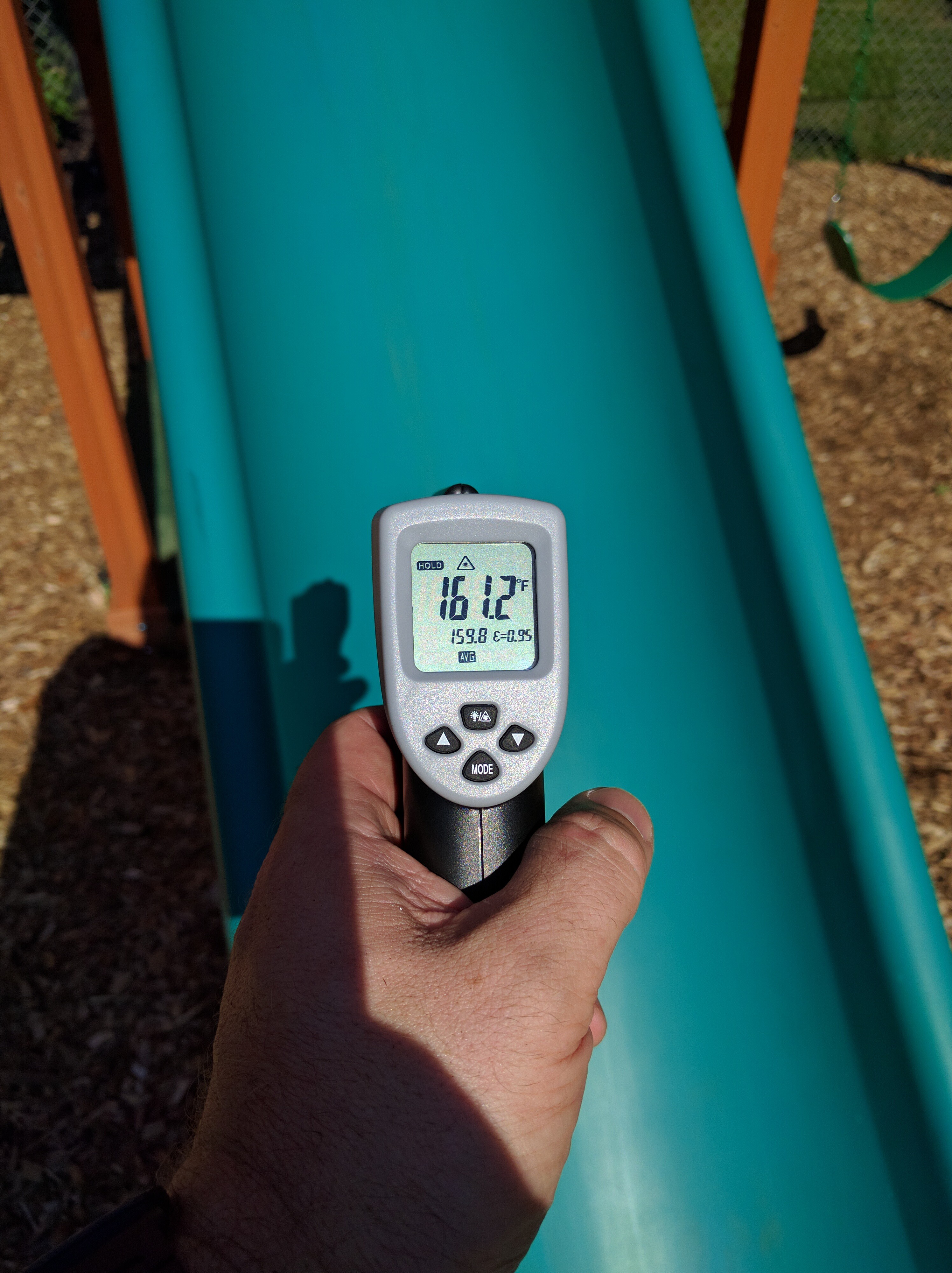
That night I thought up some elaborate plans involving an underground water storage tank, sump pump, Arduinos, relays, and motion sensors. I was excited to automate the hell out of it. But then I found out that underground water tanks started at $335. That was before all the other stuff. As usual I was trying to over-engineer the solution. Instead, I simplified my thinking.
The next day I went to my local Ace Hardware and grabbed a bunch of garden hose adapters, then went home and started getting to work. The slide was hollow, so the idea was to fill that cavity with water, thereby cooling it off. The first step was to drill a hole for the the garden hose adapter.

Next, wrap the adapter with teflon tape and screw it in! Note: brand new threaded brass is sharp. Don't use your bare fingers to screw it in.
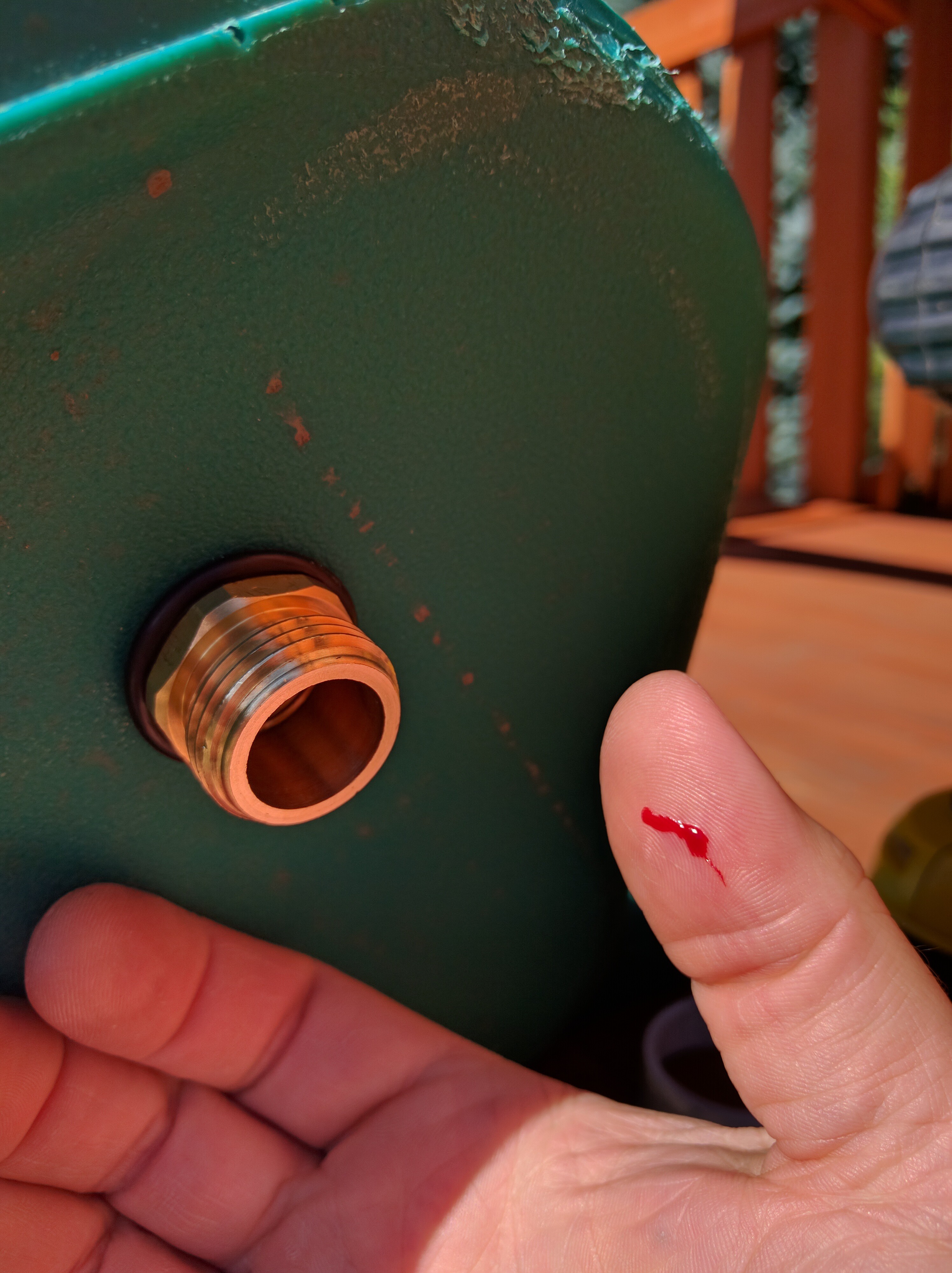
Use a wrench instead. Thanks for the help, Dora!
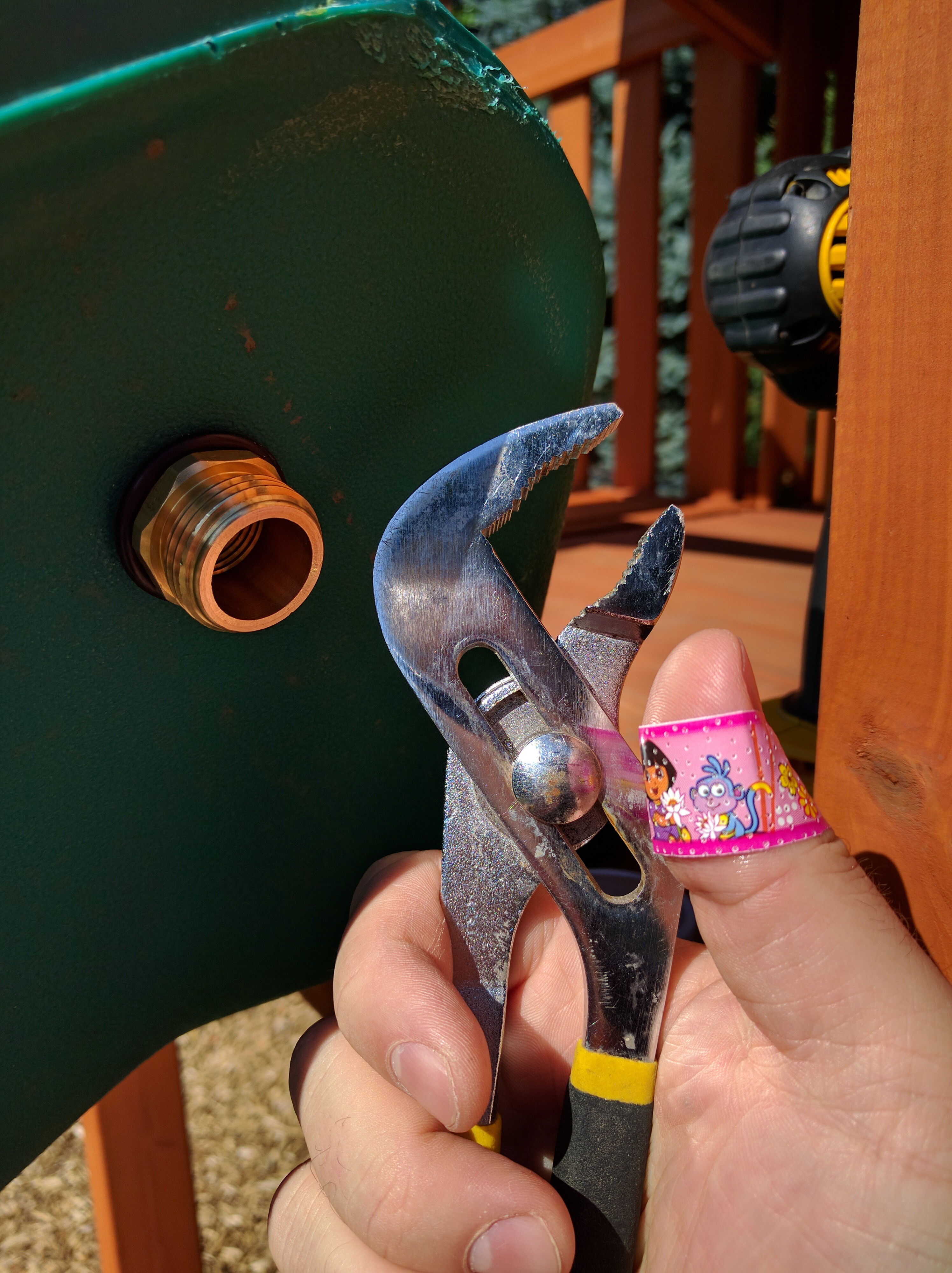 Adding a 45 degree adapter and a quick-connect with a shutoff valve makes it convenient to control the water flow from the slide instead of from the spigot!
Adding a 45 degree adapter and a quick-connect with a shutoff valve makes it convenient to control the water flow from the slide instead of from the spigot!
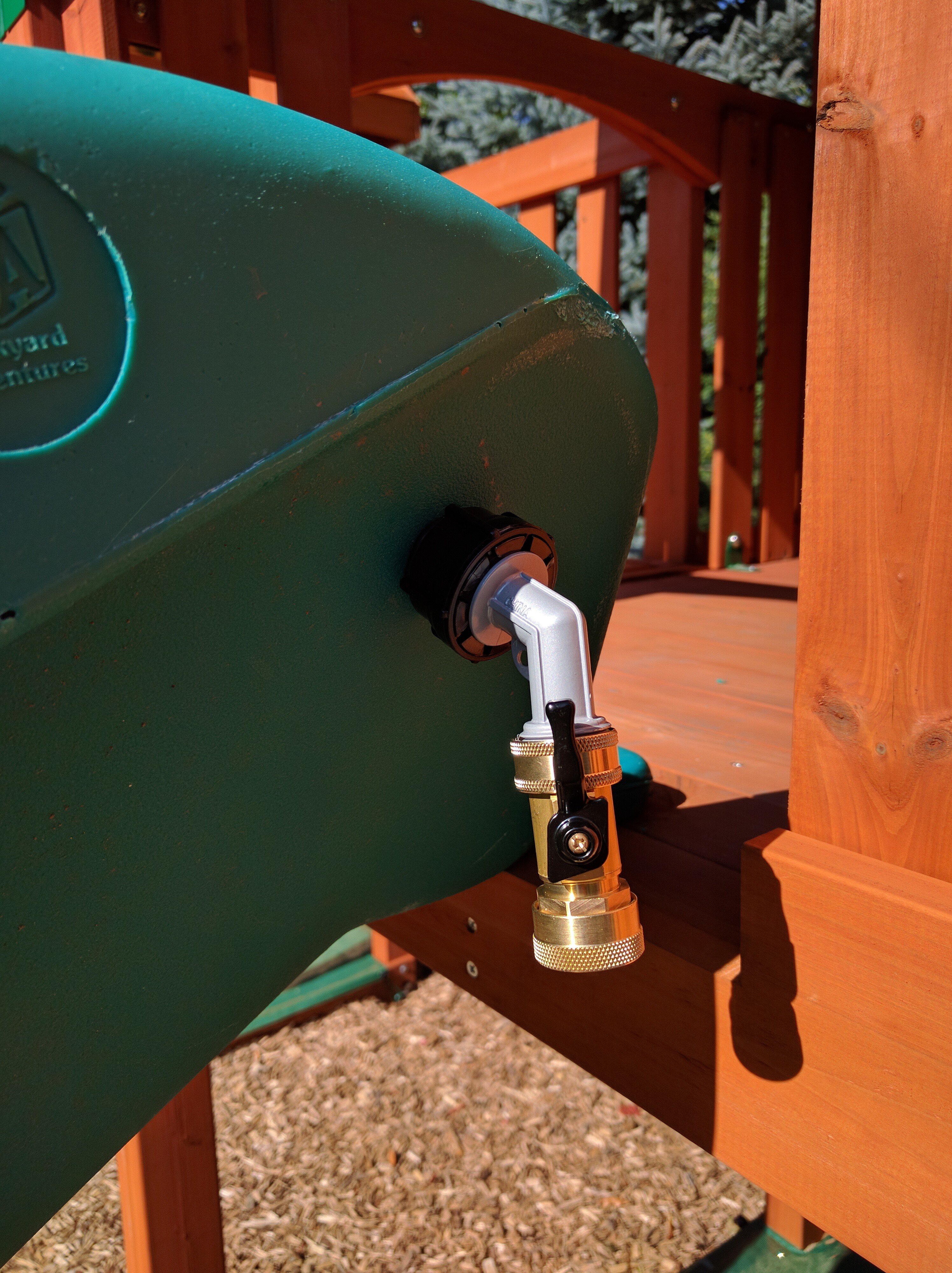
Next, the water has to have somewhere to go. So, after detaching the slide from its base I drilled another hole in the bottom of the slide.
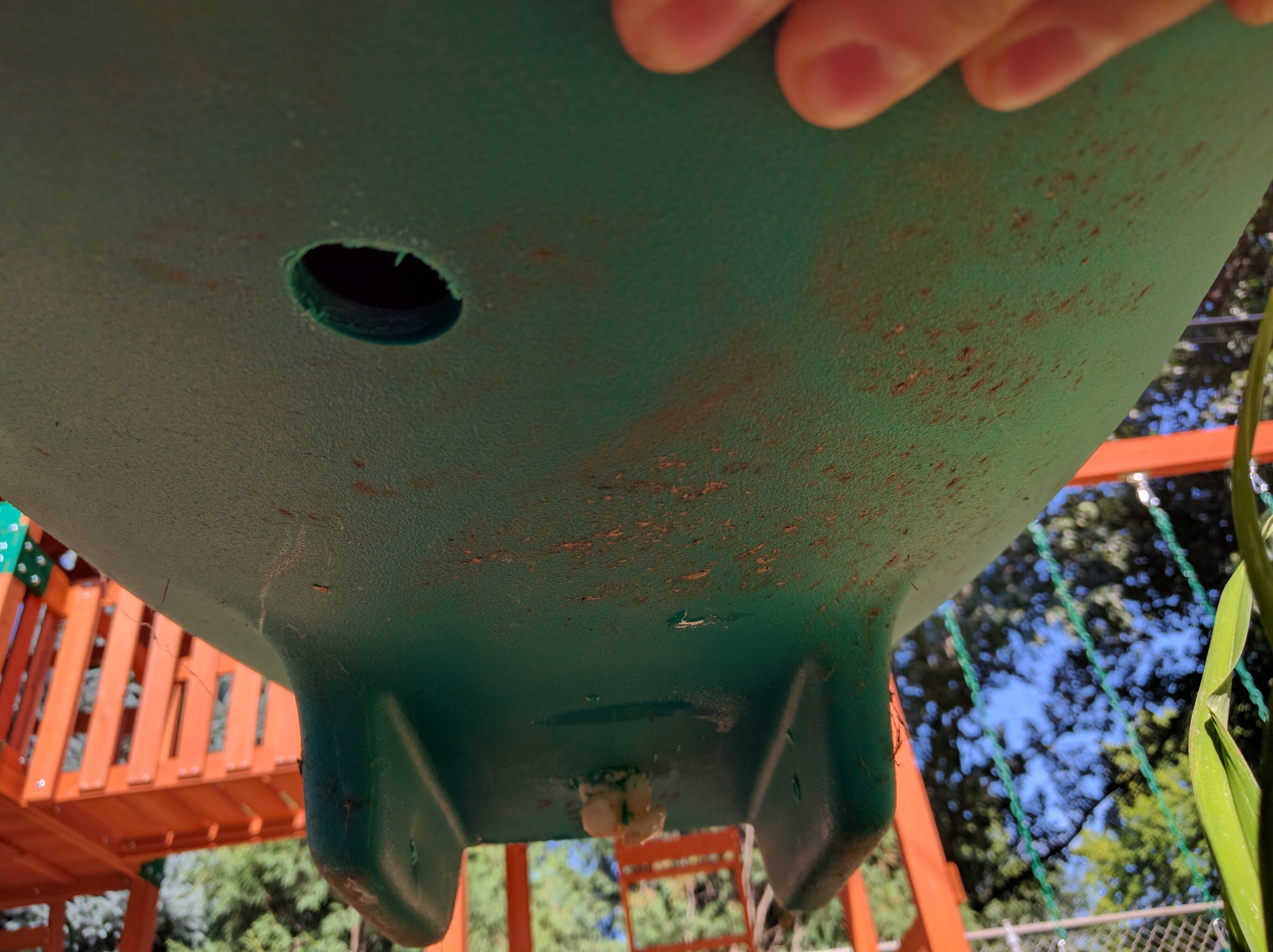
And attached the same teflon-wrapped hose adapter as before (with a wrench this time). Then, to that I attached a 45 degree adapter and a strain relief extension. I then capped it for future use.
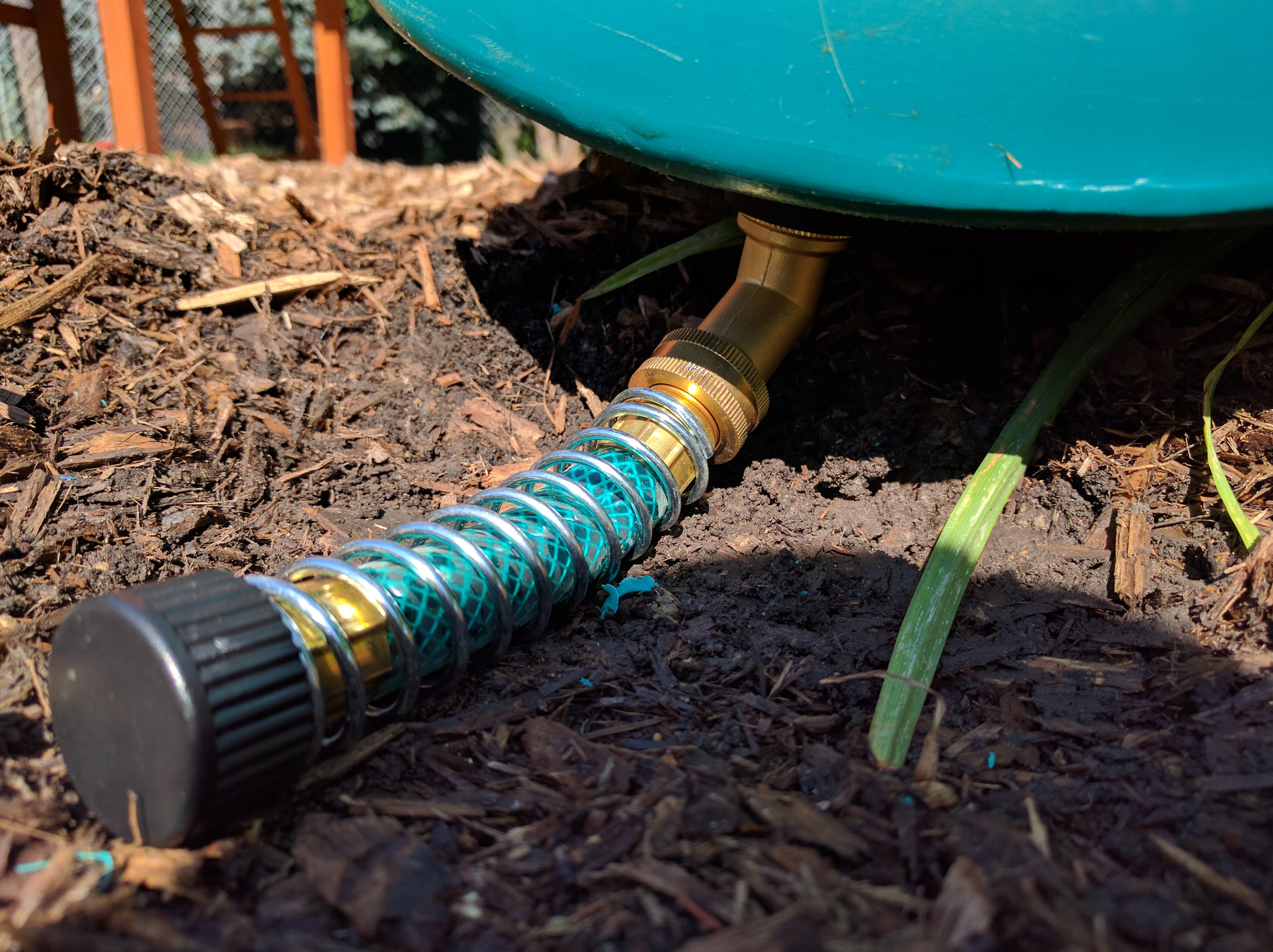
Then, to keep the pressure from building up as water flows in, I added a small air escape hole. Nearly done!
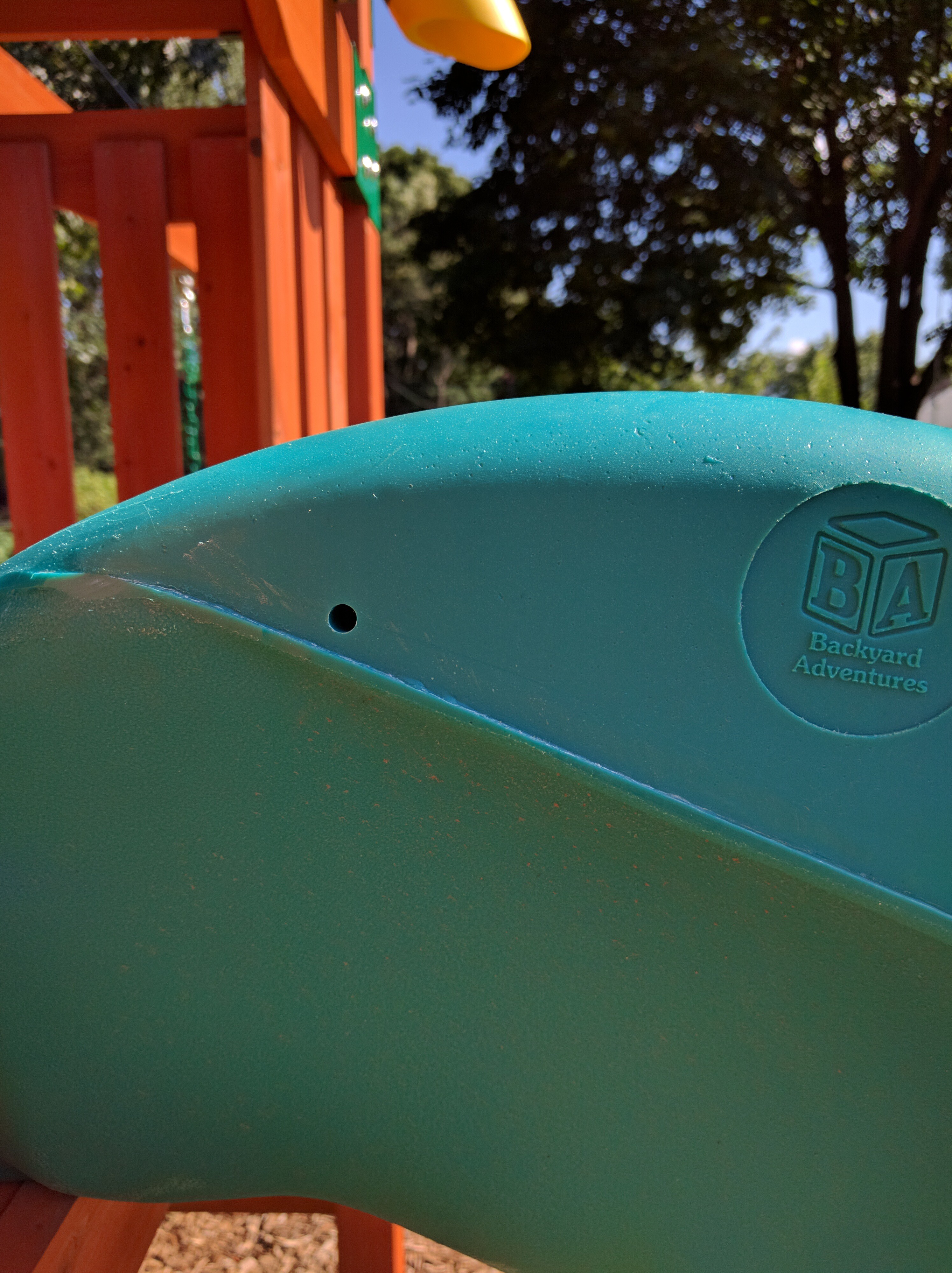
Now the fun part! Hook the hose up and give it a test!!
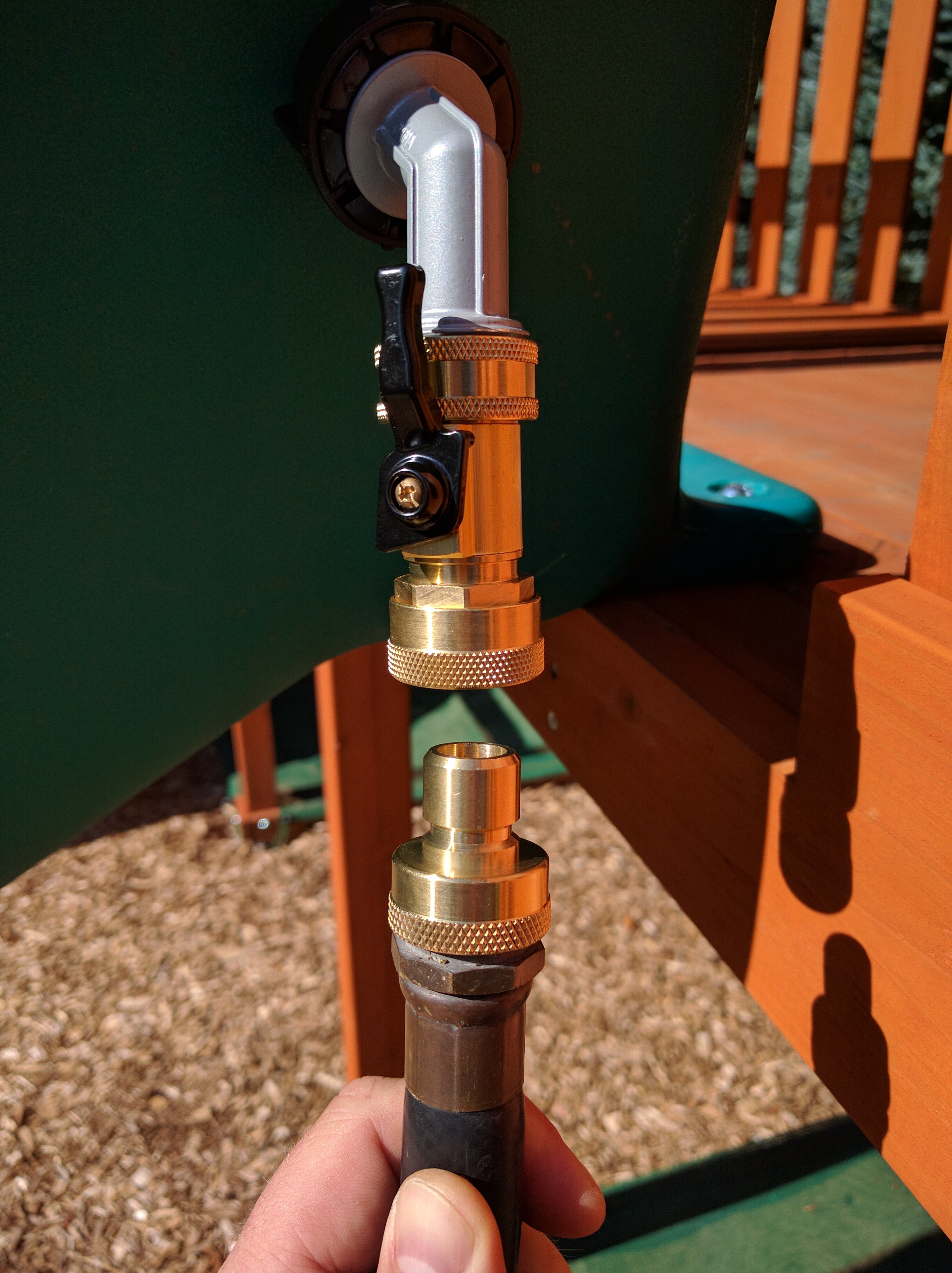
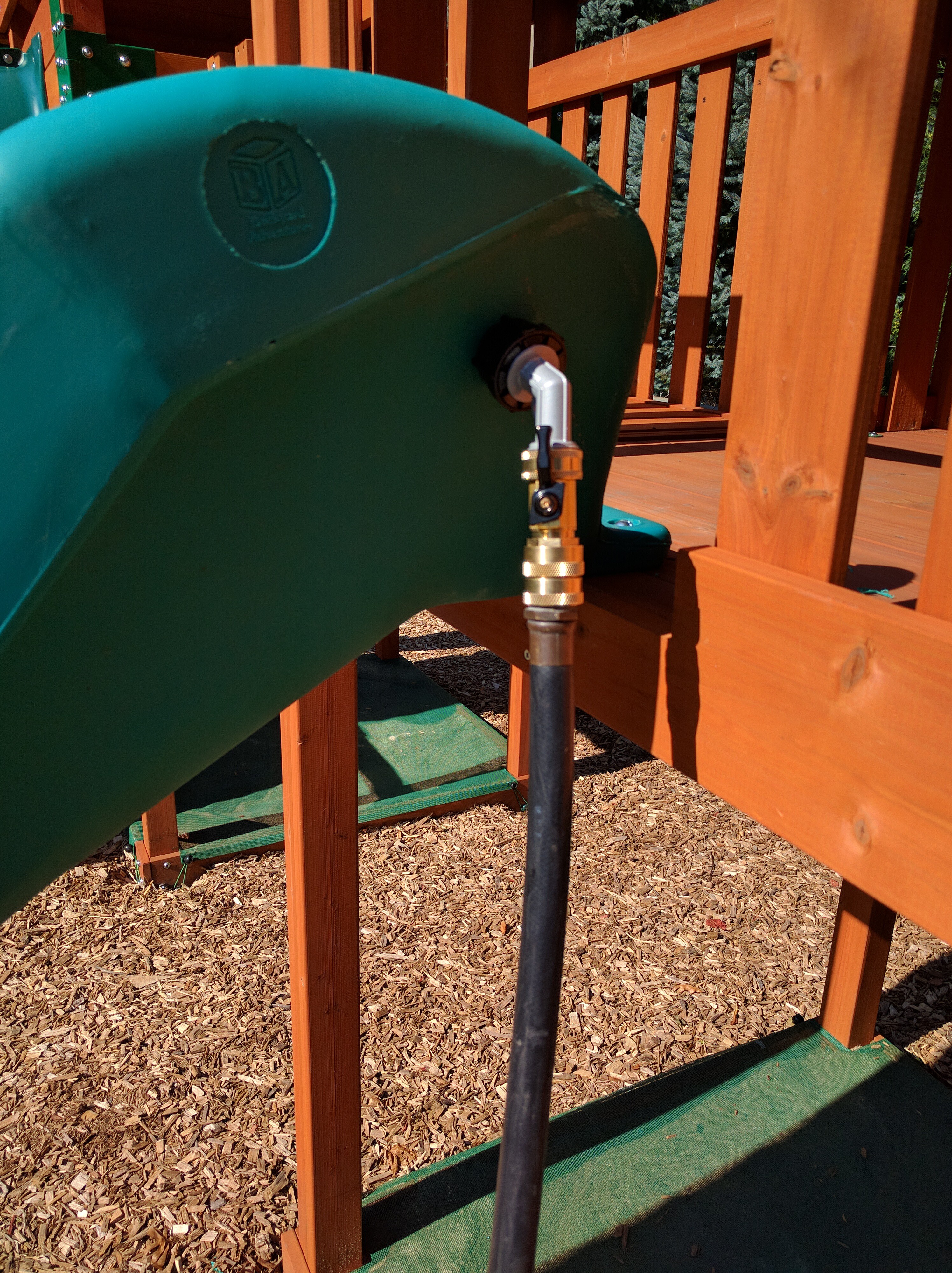
Houston, we've got a problem... Strange, it's almost as if the slide wasn't designed to hold water!
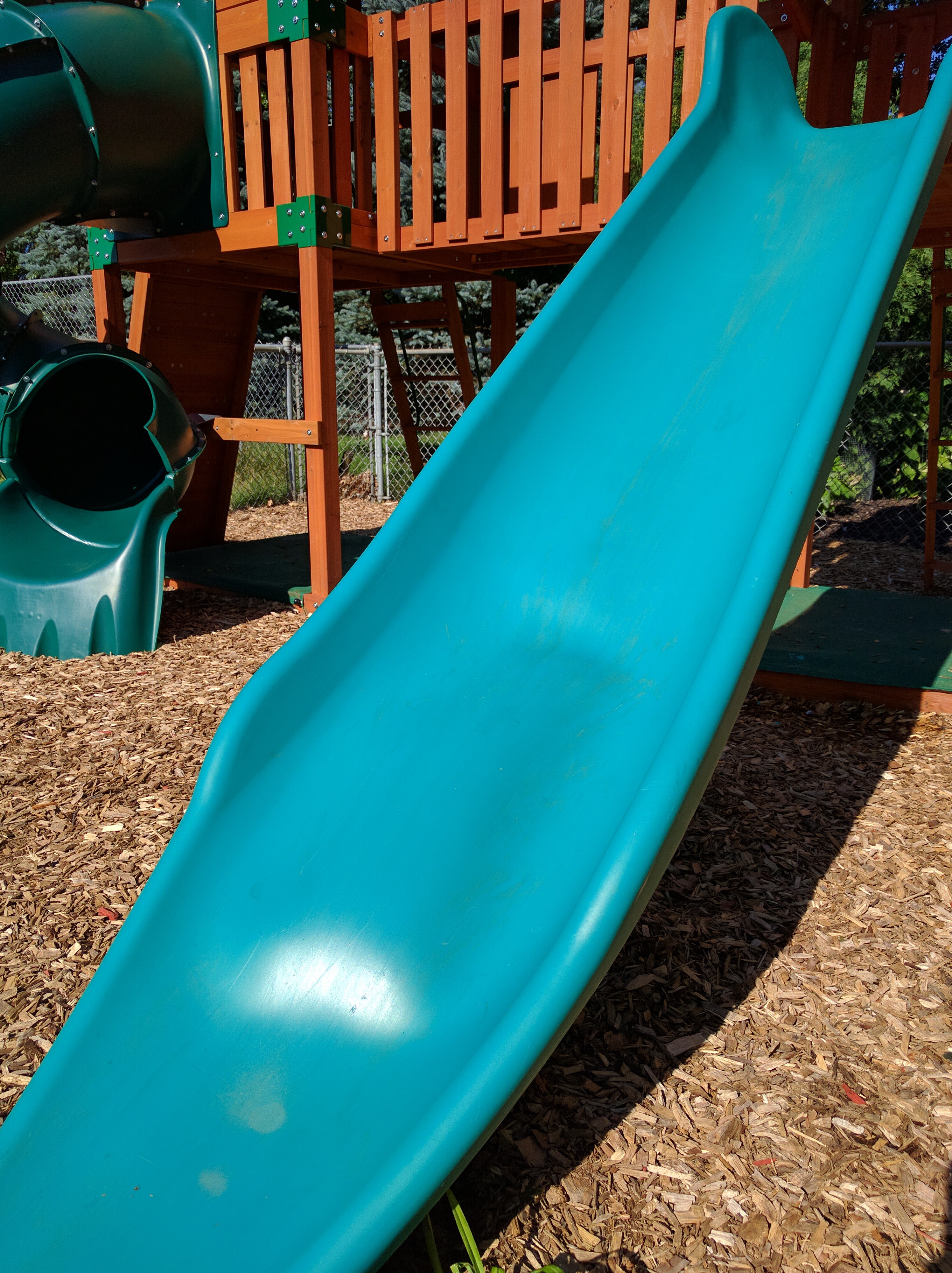
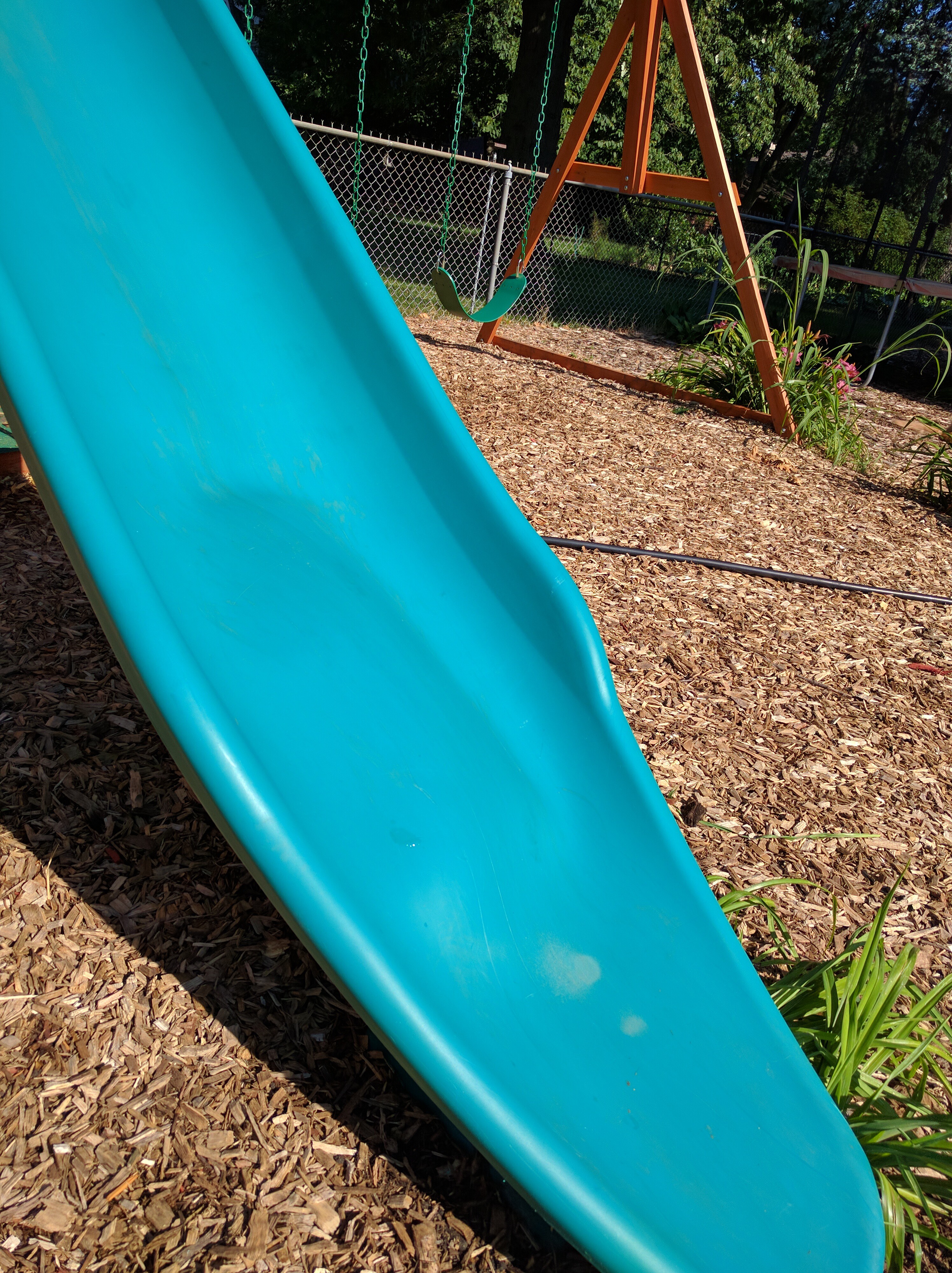
So, the plan had to be modified a bit. Instead of filling it with cool water, I'll just let cool water run through it. The bottom hose can still be used to moderate the amount of water contained within the slide at any time. With that slight modification, it's a success! Check out the difference!

So there it is. Thanks for reading through my build log. Have you tried doing something similar? What would you have done differently? Any suggestions for updates I should make?
Create an account to leave a comment. Already have an account? Log In.
I was curious, so I did some quick math for this (Just armchair engineering, if anyone has better values, please correct me):
Avg solar energy = 1kW/m^2
slide area = 10ft x ~18" = ~1.4 sq meters
1BTU = Energy to create 1 degree (F) increase in 1 Gallon of water
1kW = 3412.142 BTU/hr
If you had a 50 gallon drum and an 8 hr day:
(3412 BTU / 8 hr) / 50 gal = 8.53 degree(F) increase for 1 kW of energy
Slide Area * Solar Energy = 1.4m^2 * 1kW/m^2 =1.4 kW of solar energy
1.4 kW * 8.53 = 11.942 degree increase over the ambient temperature of the water at the beginning of the day.
You could conceivably do a close-loop system that recirculates the water into the barrel during the day and it just naturally cools down at night. Heck, make the pump solar-powered and it's completely self contained.
@jongscx - It's like you reached into my brain (then added some math) and wrote it down here! I was actually going to take it a couple of steps further though. Here was my initial (completely over-engineered) plan:
Bury a 100 gallon tank underneath the sandbox behind the slide. Drop a sump pump into it with a hose that fed into the top valve on the slide. Take the bottom valve and connect it back into the tank (closed loop). Next, I was going to put solar panels on each of the two tower roofs' south facing sides and connect them into a charge controller so I could power both an arduino and the sump pump. The whole system would then be triggered with either an IR beam break, or possibly just a focused PIR motion sensor at the top of the slide. When triggered, the arduino would flip a relay and power up the sump pump, circulating water through the slide and cooling it down. It could therefore be a closed loop for both water (geothermal) and power (solar).
With this idea, I was even going to enter the Hackaday Automation Challenge since it was fully automated and overbuilt in the best possible way. But then I came back to reality once I figured out that the cheapest tank I could get that was approved for underground use was 250 gallons and $335. That kind of zapped the fun out of it.
Thanks for doing the math to prove that it would have worked!
If you combine this hack with the Hippie-Redneck solar pool hack dated 2/18/15 you can have a cool slide and a nice warm kiddie pool as well. Two for one.
Link....
http://hackaday.com/2015/02/18/hippie-redneck-solar-heated-swimming-pool-slash-hot-tub/
That is awesome. If the slide were only built to be a bit tougher so it could actually hold the water, this would be perfect. I'd just leave the water in there to heat up, then dump it in a tub/pool and fill it back up again to cool it. 2 for 1! Unfortunately, as I figured out when I started testing, it deforms after it gets about 1/3 full. So that's not a lot of hot water. Still a cool idea though!
Nice solution. Idea: instead of just wasting the heated water, extract that energy and use it for something. You could build a Stirling engine or a Minto wheel, and use it to power some kind of mini carnival ride. Or you could do something boring with it like domestic hot water... ;)
@RunnerPack - I was tempted to go all out on this, but decided to just keep it simple. I have lots of "cool" ideas for the hot water, but they all would have resulted in more than a couple hours of build time. Thanks for the comment!
Become a member to follow this project and never miss any updates
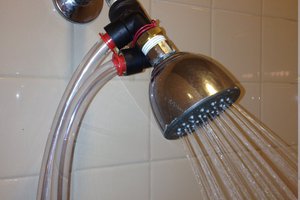
 MechaTweak
MechaTweak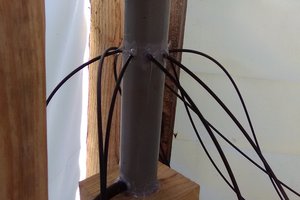
 matthewkleinmann
matthewkleinmann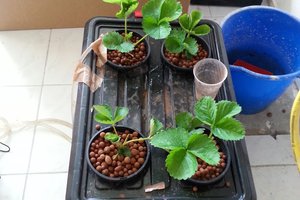
 Julius (Mr. Seeker)
Julius (Mr. Seeker)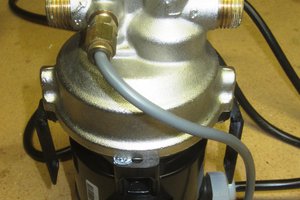
 ogdento
ogdento
Where was this back in the 60's when I was a kid :-) Man, those metal slides were hot :-D